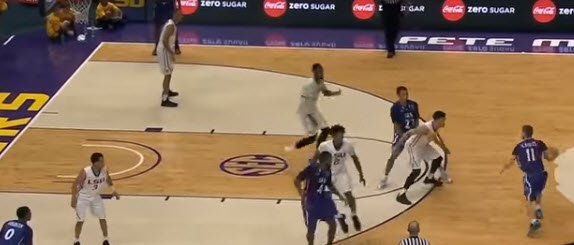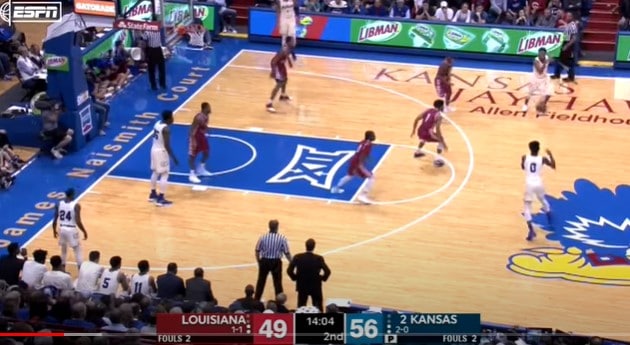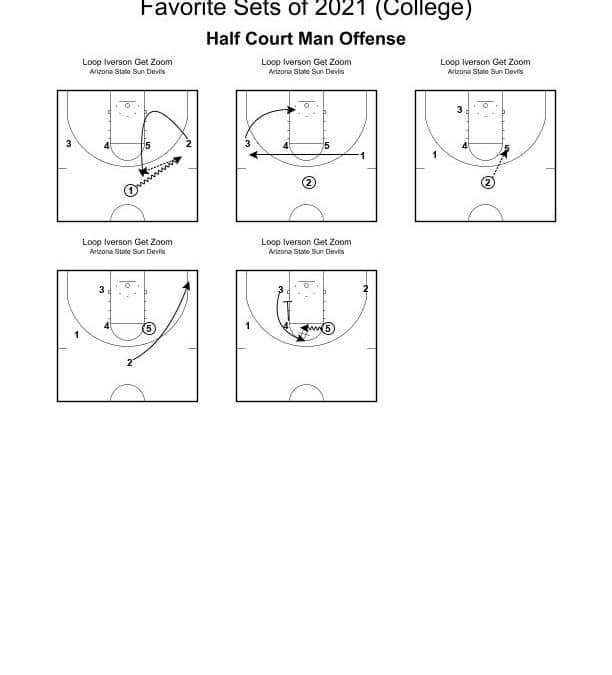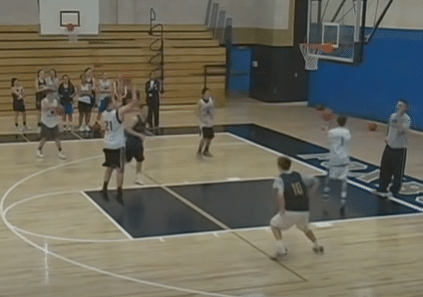One key element in playing basketball, no matter what level, no matter what gender, is the reality that chaos exists between the lines. Coaches can try to organize the chaos out of the game, but the truth is most teams will scout your offense, they’ve seen your defense, they know what you do, how you do it, and what to do to counter it. You cannot stop the flow of information out of your team and into the hands of your competitors. They see everything that you run and they will make plans to adapt to it. What is the difference between winning programs and losing programs? The coach who best trains his players to process the chaos and make consistently good decisions will be the coach who builds the best program over time.
Training for good decision makers is a failure-based process. Or if failure is too strong a word, “struggle” works as well. Players of all ages and ability levels are capable of making good decisions, but basketball puts pressure and time constraints on those decisions routinely. There is no shortage of humans who make bad decisions under pressure, so we must actively train better decision making in practice every single day. Players who are given the freedom to make mistakes, process those mistakes, and then try a new option, are the ones who will slowly but surely develop the skills necessary to compete when pressure is applied.
There is no magic pill. There is no magic play. There is no magic system. I can guarantee that none of us coaches are smarter than all the coaches who have gone before us. Different teams win with wildly different systems because they train decision makers within the confines of their system over a long period of time. Syracuse Men’s Basketball has run a 2-3 zone since the dawn of the Jim Boeheim era. Is the 2-3 zone an inherently better defensive system than man-to-man defense, a 1-3-1 zone, or a half-court trap? No, of course not. But it is the system Boeheim chose and the system that he trains his team in exclusively so that they learn the reads and decisions that go with it. The players gradually gain experience making the correct decisions in practice and are able to eliminate the mistakes so that Boeheim has amassed an incredible 926 wins at the Division I level. Boeheim proves the point that you can win in any manner, you just need to commit to your system and allow your players to not only learn the system itself but learn how to be great decision makers within that system.
So for coaches, a good rule of thumb is, “If practice looks clean and neat, we aren’t training the right way.” If a practice is crisp with no mistakes, we aren’t training well enough for the chaos of the real challenges ahead. Put your system in, commit to it, but then recognize that the real work in coaching comes from helping players edit their behaviors in that system through a long series of progressively smaller mistakes. Correct those mistakes as they materialize, but don’t stifle the player’s ability to continually make decisions because players are ultimately who will win the games. And players who develop high-level decision-making skills are the ones who will be the pillars upon which you build your program.





0 Comments